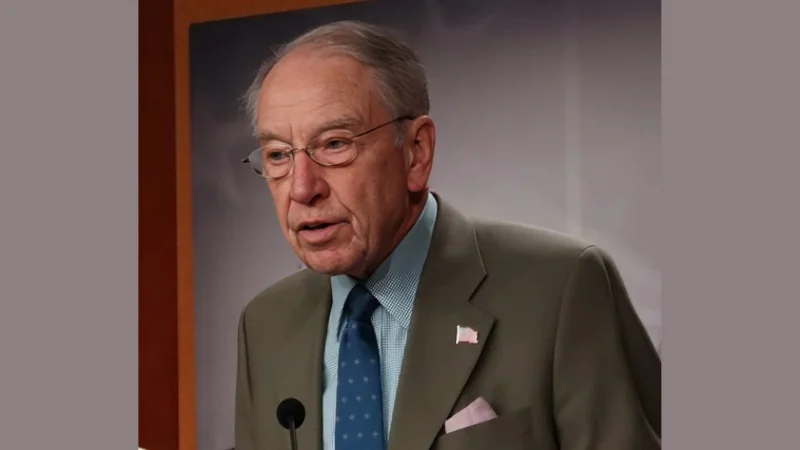Senate Judiciary Committee Chairman Chuck Grassley (R-Iowa) has released statements from two federal judges and the Administrative Office of the Courts (AO) about their use of generative artificial intelligence in drafting court orders. The admissions came from U.S. Southern District of Mississippi Judge Henry T. Wingate and U.S. District of New Jersey Judge Julien Xavier Neals, who acknowledged that their staff used AI tools to help write court documents containing significant factual errors.
The mistakes included misquoting state law, referencing individuals not involved in the cases, and attributing fabricated quotes to defendants.
Grassley commented on the matter: “Honesty is always the best policy. I commend Judges Wingate and Neals for acknowledging their mistakes and I’m glad to hear they’re working to make sure this doesn’t happen again. Each federal judge, and the judiciary as an institution, has an obligation to ensure the use of generative AI does not violate litigants’ rights or prevent fair treatment under the law. The judicial branch needs to develop more decisive, meaningful and permanent AI policies and guidelines. We can’t allow laziness, apathy or overreliance on artificial assistance to upend the Judiciary’s commitment to integrity and factual accuracy. As always, my oversight will continue.”
In response to Grassley's inquiry, both judges have put new procedures in place. Judge Wingate now requires a second independent review for all draft opinions, orders, and memos, along with printed copies of cited cases attached to final drafts. Judge Neals has issued a written policy banning law clerks and interns from using AI when preparing opinions or orders; he also established a multi-level opinion review process.
The AO informed Grassley about its advisory AI Task Force created earlier this year, which released interim guidance on July 31, 2025. This guidance provides general suggestions allowing experimentation with AI tools while recommending users consider whether AI use should be disclosed. These are temporary measures as permanent policies are developed.
The Senate Judiciary Committee holds broad authority over judicial proceedings at the federal level and continues oversight on issues related to technology use within courts.









